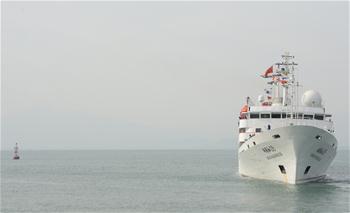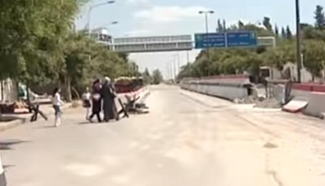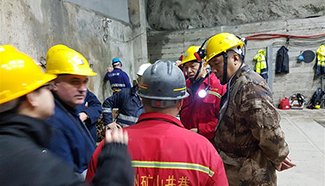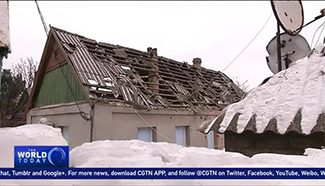UNITED NATIONS, Feb. 6 (Xinhua) -- The UN special coordinator for the Middle East Peace Process, Nickolay Mladenov, on Monday said that he is "concerned" by the scheduled vote by the Israeli legislative body on a bill that would "legalize" Israeli settlements on privately-owned Palestinian land in the occupied West Bank, a UN spokesman told reporters here.
In a statement issued earlier Monday, Mladenov said that if adopted into law, it will have far reaching legal consequences for Israel and greatly diminish the prospects for Arab-Israeli peace," UN spokesman Stephane Dujarric said at a daily news briefing here.
"The bill has been deemed unconstitutional by the attorney general of Israel and is in contravention of international law," the spokesman said, quoting the UN Middle East envoy. "He urged Israeli legislators to reconsider this move."
All core issues should be resolved between the two parties through direct negotiations on the basis of relevant Security Council resolutions and mutual agreements, the UN envoy said.
The bill, if adopted, would legalize about 4,000 homes in unauthorized outposts across the West Bank -- many consisting of little more than rusting mobile homes hastily towed to the sites -- that were built on land privately owned by Palestinians, and offers the landowners compensation.
Attorney General Avichai Mandelblit has said some of the bill's provisions are illegal.
The State of Israel would seize the lands, offering compensations or alternative land to the landowners, even if they do not agree to waive their property.
Israeli Prime Minister Benjamin Netanyahu was under heavy pressure from his ultra-nationalist coalition partners to bring the bill to vote following last week's court order demolition of the illegal outpost of Amona.
The evacuation triggered anger among the settlers. These outposts were erected by ultra-right settlers without permits from the Israeli authorities but the governments often have turned a blind eye to their construction.
There are additional 120 settlements that Israel considered as legal.
Both outposts and settlements are illegal under international law as they were built on lands occupied by Israel in the 1967 Mideast War, where the Palestinians wish to build their future state.














